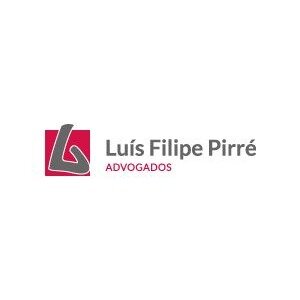Best Education Law Lawyers in Coimbra
Share your needs with us, get contacted by law firms.
Free. Takes 2 min.
List of the best lawyers in Coimbra, Portugal
About Education Law in Coimbra, Portugal
Education Law in Coimbra, Portugal, like in the rest of the country, governs the legal aspects of educational institutions, students, and faculty. It encompasses regulations and statutes that oversee the creation, administration, and operation of public and private educational bodies. Coimbra, known for its prestigious University of Coimbra, reflects a rich educational tradition, and the legal framework here ensures that the rights and responsibilities of all stakeholders in the education system are upheld. This includes compliance with national laws, local ordinances, and international standards relevant to education.
Why You May Need a Lawyer
Various situations may necessitate consulting or hiring a lawyer specializing in education law. These can include disputes over student rights, issues of discrimination or harassment within educational settings, academic integrity violations, and conflicts regarding special education services. Additionally, legal assistance may be needed for understanding rights related to school governance or navigating the complexities of education reform or policy enforcement. For educational institutions, legal guidance might be required for regulatory compliance and in drafting policies that align with current legislation.
Local Laws Overview
In Coimbra, the education system is subject to Portuguese national laws, including the Lei de Bases do Sistema Educativo (Education System Framework Law), which dictates the foundational principles of education in the country. Local ordinances may also affect how educational policies are implemented on a regional basis, addressing specific needs or cultural contexts. Laws governing the rights of staff and students, including anti-discrimination statutes, special education mandates, and privacy regulations, are also crucial for understanding the legal landscape of education in Coimbra.
Frequently Asked Questions
What rights do students have in Coimbra?
Students in Coimbra have the right to a fair and equitable education, freedom from discrimination, and the right to privacy. They are also entitled to due process in disciplinary matters and can exercise academic freedom within the constraints of academic honesty.
How are education policies enforced in Coimbra?
Education policies are enforced by local educational authorities in conjunction with national regulations. Compliance is monitored by the Ministry of Education, and any disputes are addressed through legal channels or regulatory bodies.
What should I do if my child's rights are violated at school?
Parents should first address the issue with school officials. If the problem persists, consulting an education lawyer to understand and potentially pursue legal remedies is advisable.
How can educational institutions ensure compliance with the law?
Schools and universities can ensure compliance by regularly reviewing policies with legal professionals, training staff on legal obligations, and staying informed on changes in legislation.
What are the legal requirements for special education in Coimbra?
Special education in Coimbra adheres to national laws that mandate the accommodation and accessibility for students with disabilities. Schools are required to develop individualized education plans (IEPs) and provide necessary resources.
Are teachers protected by specific laws in Coimbra?
Yes, teachers are protected by labor laws and specific regulations that encompass employment rights, occupational health, and safety, as well as provisions against discrimination.
Can private schools set their own policies?
While private schools have some autonomy in policy-making, they must comply with national educational standards and legal requirements, including those regarding student and staff welfare.
How are bullying incidents legally addressed in Coimbra schools?
Bullying is addressed through school policies compliant with national anti-bullying laws. Incidents are handled by school authorities and may involve legal action depending on severity.
What legal resources are available for low-income families regarding education law?
Low-income families can seek assistance from public interest organizations and legal aid services that offer guidance and representation on education-related legal matters.
How are disputes between educational institutions and government bodies resolved?
Such disputes are typically settled through administrative hearings or judicial processes, with legal representation recommended for navigating complex regulatory issues.
Additional Resources
For those seeking further information or assistance, the following resources may be helpful:
- Ministry of Education: Offers comprehensive guidance on educational policies and regulations.
- University of Coimbra Legal Office: Provides support and advice on compliance and legal matters within the university context.
- Bar Association of Coimbra: Can connect individuals with qualified legal professionals specializing in education law.
- Public Education Advocacy Groups: Assist in representing student and parent interests and promoting educational rights.
Next Steps
If you require legal assistance in education law, consider the following steps:
- Identify Your Needs: Clearly define the legal issue or question you are facing.
- Consult a Lawyer: Reach out to an education law specialist in Coimbra for advice tailored to your specific situation.
- Gather Documentation: Collect any relevant records, communications, or documents associated with your concern.
- Consider Mediation: Explore mediation or alternative dispute resolution options before pursuing formal legal action.
- Stay Informed: Keep up-to-date with any changes in education law that may affect your rights or obligations.
By taking these steps, you can make informed decisions and better navigate the complexities of education law in Coimbra, Portugal.
Lawzana helps you find the best lawyers and law firms in Coimbra through a curated and pre-screened list of qualified legal professionals. Our platform offers rankings and detailed profiles of attorneys and law firms, allowing you to compare based on practice areas, including Education Law, experience, and client feedback.
Each profile includes a description of the firm's areas of practice, client reviews, team members and partners, year of establishment, spoken languages, office locations, contact information, social media presence, and any published articles or resources. Most firms on our platform speak English and are experienced in both local and international legal matters.
Get a quote from top-rated law firms in Coimbra, Portugal — quickly, securely, and without unnecessary hassle.
Disclaimer:
The information provided on this page is for general informational purposes only and does not constitute legal advice. While we strive to ensure the accuracy and relevance of the content, legal information may change over time, and interpretations of the law can vary. You should always consult with a qualified legal professional for advice specific to your situation.
We disclaim all liability for actions taken or not taken based on the content of this page. If you believe any information is incorrect or outdated, please contact us, and we will review and update it where appropriate.









